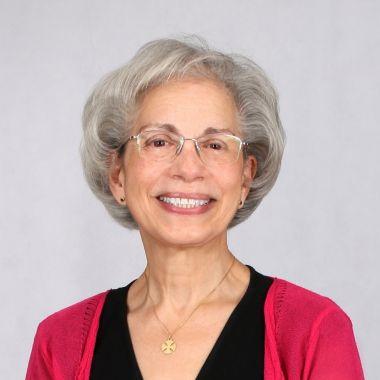Whenever anyone asks me "how did you meet Jesus Christ?", my answer is always: "I didn't seek him—he sought me!"
I was a dutiful child of Muslim parents who was initially attracted to Christianity after wandering into a Catholic church and being spellbound by its beauty and sanctified atmosphere.
By the age of twelve I had read and re-read the New Testament and the Book of Common Prayer from cover to cover late at night by the light of a torch under my bed covers.
I had already encountered Jesus in the Koran where he is not called the Son of God, but he was indeed born of a Virgin and named as the Messiah. I loved all the Koranic stories relating to him, and pondered on the mystery that surrounded him. Who was this sinless and totally loveable man? Where did he get his authority?
I was not moved by Muslim prayers, even though I tried my best, and Islam didn't respond to my deep-seated need for a very personal relationship with God in the way that Christ did.
My first practical experience of living by Christ's example was revealed during my first Christmas at Nottingham University. On Christmas Eve, the Methodist chaplain came knocking on doors, asking whether anyone wished to take up the offer of Christmas lunch with local parishioners. I said I was Muslim and that we didn't celebrate Christmas, but his reply was that his church welcomed foreign students of any religion, or none.
Through that encounter, I met many generous members of his Methodist congregation, all of whom welcomed me warmly into their church and were kindness personified. My experience of their particular brand of Christian faith, and their infinite care, fellowship, and support while I was a student and beyond, left a deep and lasting impression.
I then saw Christianity from a completely different perspective by spending a month with Sisters of the Cross and Passion in their Yorkshire convent, and several months with the Jesuit Fathers at their House of Studies in North Wales. This came about due to my literary PhD studies of faith and doubt, as my supervisor felt I should have a first-hand experience of daily life in holy orders.
These were wonderful experiences, and interestingly, those nuns and priests were among the most tolerant Christians I have ever met. They knew I was in the throes of questioning my personal faith, but they never tried to influence me in any way, and my abiding memory is one of pure respect, warmth, kindliness, and genuine regard. It certainly shed a new light on the Catholicism so often criticised by my staunchly fundamentalist friends. Fresh from this immersion in the life of those in holy orders I was lit from within with the fire of the personal relationship with Jesus Christ for which I had been craving all my life. Christianity was answering my deepest spiritual needs.
In 1977, I returned home from Nottingham to Tehran with my precious doctorate. That year I shared a flat with a British girl who introduced me to the Persian Anglican Church. My parents weren't enthusiastic about my church attendance, but were gracious enough to accept my spiritual search.
From the moment I entered St Paul's Church in Tehran, hearing the familiar Anglican liturgy in both English and Farsi, I felt a great weight lifting from my shoulders. I had been contemplating Christianity as an outsider for twenty years, and I had finally found an environment that answered my spiritual needs and still retain my Persian heritage.
From its inception this small Persian church, a member of the Episcopal Church in Jerusalem and the Middle East, had maintained its very Iranian essence despite western influences, and that was its strength. The Tehran congregation had both Persian and English speakers, so divine service was held in both languages. The Episcopal Church, which is the 'broad' or middle way (via media) between Roman Catholicism and Reformed Protestantism suited me perfectly. I had found my spiritual home.
My eventual 'Road to Damascus' moment was not dramatic, but silent as morning dew. One day I awoke and just knew. God is a tremendous and patient Lover, and the Holy Spirit had been seeking me for a long time. When the call finally came it was the easiest decision ever, and a moment of pure joy. For me, going public would mean that life would not be the same again, and my family would encounter criticism for having nurtured an apostate. However, it was unerringly the right decision at the right time.
On a beautiful spring morning in May 1978 I was baptized and confirmed at St Paul's Church in Tehran by Hassan Dehqani-Tafti, our Persian Bishop, himself a convert from Islam. Christ had sought me and had waited patiently for 20 years, but I was finally His.
Farifteh V Robb is the author of In the Shadow of the Shahs: Finding Unexpected Grace, out now from Lion Books priced £9.99.
Originally from Christian Today
CCD reprinted with permission.












